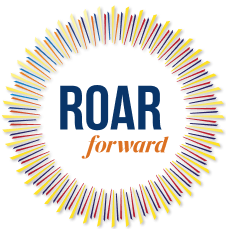Why is it that our culture creates so many words and expressions that under the surface are masked ageism? In turn, we internalize those words and place limitations on ourselves.
Let’s make a list. Why should we say midlife crisis when at midlife we have an awakening as to who we really are after 45 years or more of living our lives. Instead of age-appropriate shouldn’t we be thinking about person-appropriate? People are choosing to become a parent at 50, go back to school at 60, and fall in love again at 80!
Then there is that toxic word “retire” when so many of us want to refire into the next chapter of our lives acknowledging that our first career will not be a part of that plan. How about a second or third career that allows you to go back to your younger self and reclaim something that you left behind and call it your “passion work”?
Recently, when I was hiking in the Badlands of South Dakota, I saw a man in his 60’s, who was walking slowly towards me and laughed that he was getting older! “Ahhh my friend, you are actually living longer,” I replied. He let out a big smile. Yes, we are all gaining in age, but the blessing of longevity is a gift that is ours to cherish. Why don’t we embrace it in that context?
So why then do we have to chase this notion that if we take care of ourselves, look good, and are vibrant that we have to say that 60 is the new 40? Let’s all embrace that 60 is the new 60 and 70 is the new 70 and so on. We are the ones that have an opportunity to redefine and reshape what living longer can look like.
When I turned 60, I ran the Antarctica Marathon, completing 7 marathons on 7 continents. Yet, at the Toronto Marathon, I witnessed the first 100- year -old man, Fauja Singh cross the finish line. He didn’t run his first marathon until he was in his 80’s! It made me think that 100 is the new 100!
By 2030, one in five Americans will be 65 plus and this is a generation that is already abandoning what that might look like. They are starting businesses, going back to school, as I did to earn a Masters Degree at 67. This group will become more philanthropic as many of them have amassed the resources to make an important social impact. They are already rewriting the script of their life that they are supposed to live and living the life that they want to live. It’s the overall culture that needs to catch up.
To make this happen, let’s start with a reckoning of words and images to represent the new type of 50 plus person that is the emerging role model. Instead of passive, slow walking individuals who spend time with pets and grandchildren, let’s show fit, tech-savvy people who are living engaged and active lives.
We are at the cusp of a new set of life cycles, as life expectancies are getting longer not just for us but for the generations that follow us. For those who are 60 and healthy today, that may mean another 30 years or more of life. By 2100, it is projected that there will be over 5 million Americans who will be 100 years old vs. 90,000 today.
It’ll mean a whole rethink of not just words and images, but work, love, and lifestyles. What’s your plan?
Originally published as a guest post on MEA Wisdom Well.
ABOUT Michael Clinton
Michael Clinton is the special media advisor to the CEO of the Hearst Corporation and author of
ROAR into the second half of your life.
ABOUT ROAR
In ROAR into the Second Half of Your Life – Before It’s Too Late, longtime publishing executive and author Michael Clinton offers those considering midlife transformation a proven process to achieve a passionate and fulfilling life. With expert insights and actionable techniques, the book offers an empowering path for reimaging and embracing your future through a dynamic process called ROAR:
- R: Reimagine yourself
- O: Own who you are
- A: Act on what’s next
- R: Reassess your relationships
Michael shows readers how to ROAR into their future. Demonstrated through his own example, along with tips, resources, and true stories from over forty people who didn’t let their age or other setbacks stop them, readers will aspire to pursue their goals and get back to a life well-lived. Prescriptive and inspiring. ROAR will motivate, entertain, and transform readers.

